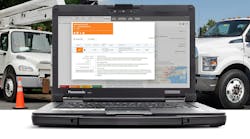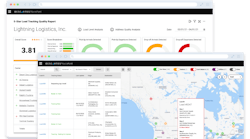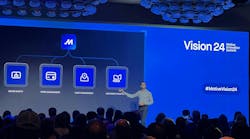Editor's note: The author of The Big Rig: Trucking & the Decline of the American Dream, Steve Viscelli spent over a decade studying the industry and interviewing truckers. He obtained a CDL and drove full-time for six months to experience a driver’s life. He is currently a Senior Fellow at the Kleinman Center for Energy Policy at the University of Pennsylvania.
Most drivers at big trucking firms were already working with onboard recorders so not much has changed in the actual recording of time and the limits that implied. What has changed is that drivers and firms are talking about the limitations and using it to pressure shippers to speed up or pay. It’s hard to know what effect that is having because it is coming at the same time as the broader capacity issues that are giving carriers pricing power and the rare ability to simply say ‘no’ to loads.
For drivers that weren’t using electronic logs before, some have seen big changes – not surprising, since 14-hour violations were key to a lot of loads. For example, drivers would lay up at a truck stop close to a customer the night before and not start logging until after loading the next day. It’s harder to do that now and that means those loads now need to be pre-loaded, relayed or are just going to take another day.
I don’t think we know exactly how big a chunk of the market that is, but I’m hearing about it. I should say, this is not much different from the transition bigger firms already went through with early electronic logs.
ELDs can definitely help drivers ask for and document detention, and since everyone has to play by the same rules now, it will prevent undercutting of practices. The problem right now is truckers aren’t inclined to cut each others’ throats (as much) and so it’s hard to say what will happen when shippers start playing carriers more intensely. And another big problem is that drivers are still underreporting hours spent on customer locations to preserve their driving time.
About ELD effects on driver sleep patterns, I am hearing about drivers rushing to get loads done when they wouldn’t have before. Again, this happened when bigger carriers moved to electronic as well. Drivers are definitely feeling more pressure, so I think it cuts both ways. It prevents some abusive practices and long days, but it also forces drivers to rush and cut corners. I don’t know what the net effect is in the long-term.
The broader benefit of ELDs is that fleets are thinking more intently about how to use driver time efficiently. It has always cost them something to waste drivers’ time or allow shippers to waste it, but now the cost of that is going up. Before you could put more of the cost on the driver, who often had to make up the time to ensure his paycheck didn’t take the hit.
A lot has been left on the table with ELDs. This is because fleets are still addressing the problem through a flawed lens. ELDs address the system of the problem – drivers not recording their time accurately – not the problem itself, which is the inefficient use of drivers’ time. As long as driver time is free it will be wasted or used inefficiently. If we really want to capture the benefit of ELDs for drivers, we need to use them to automatically record driver time spent at customer locations.
One benefit of ELDs is that it seems to be assumed that they accurately record drivers’ work time. They accurately record most driving time, but they still don’t capture a huge chunk of work, the non-driving on-duty time. It’s that time that has been increasing with decreasing lengths of haul, so this issue is only going to increase in importance. We aren’t going to stop wasting drivers’ time until we pay for it, and we aren’t going to pay for it until it is accurately recorded. That is going to take an additional policy to really capture the benefits of ELDs.



